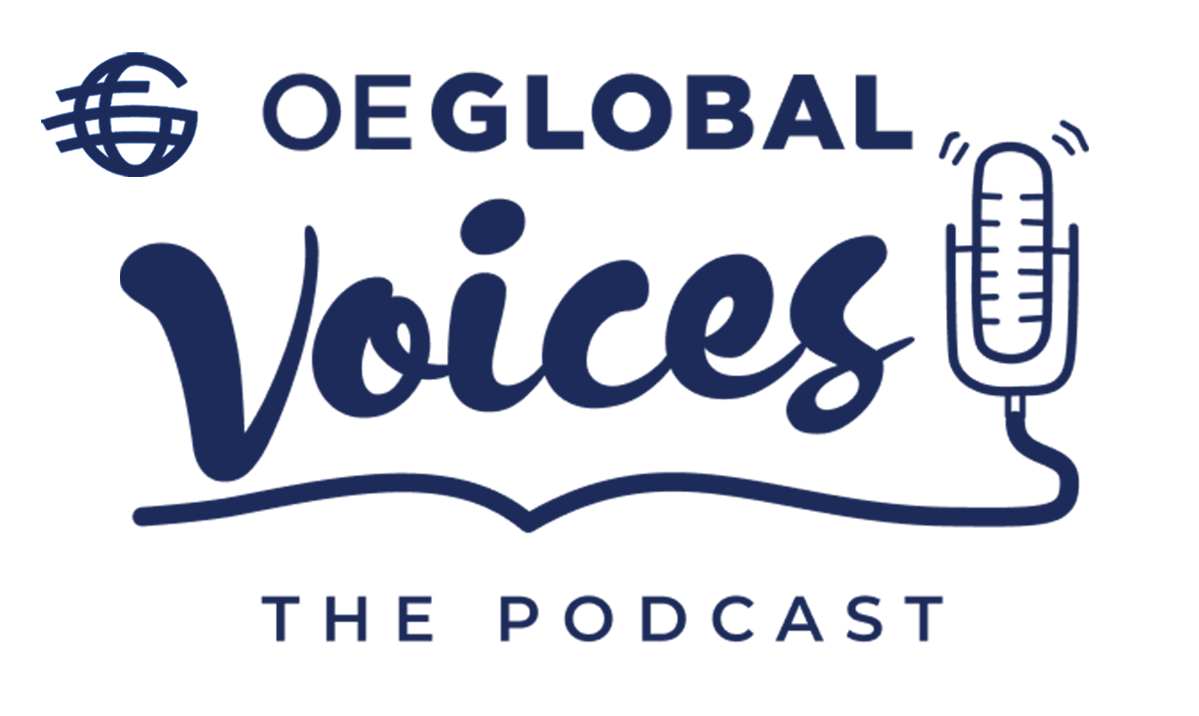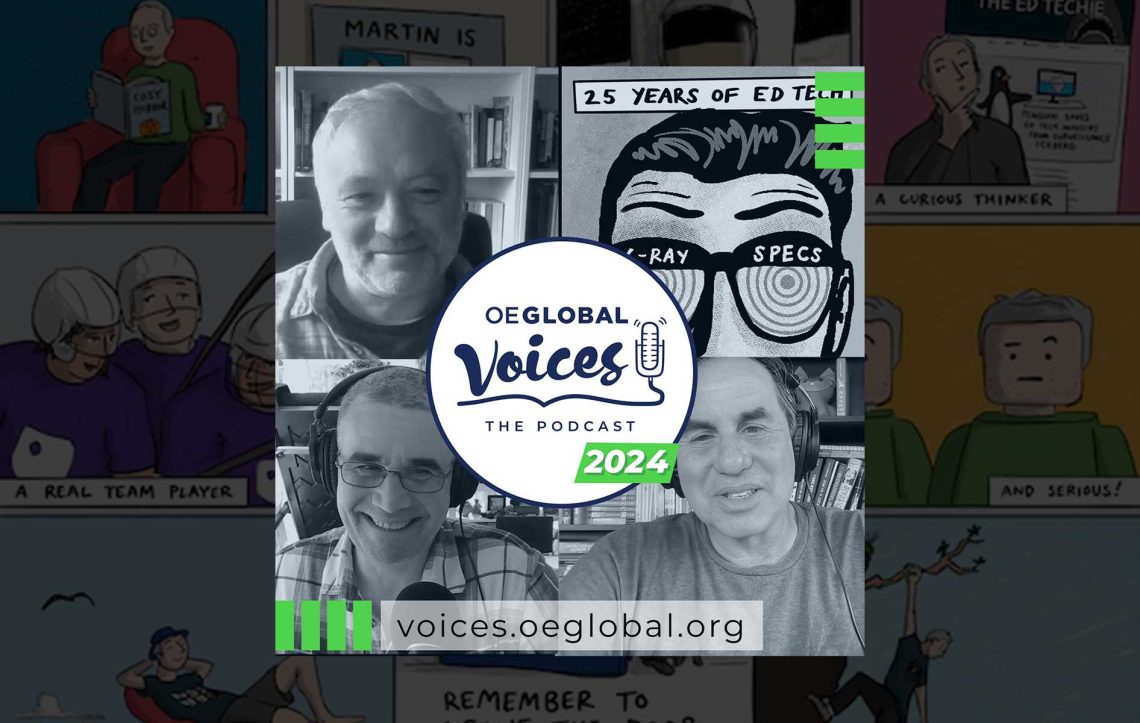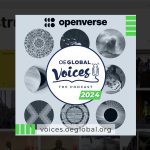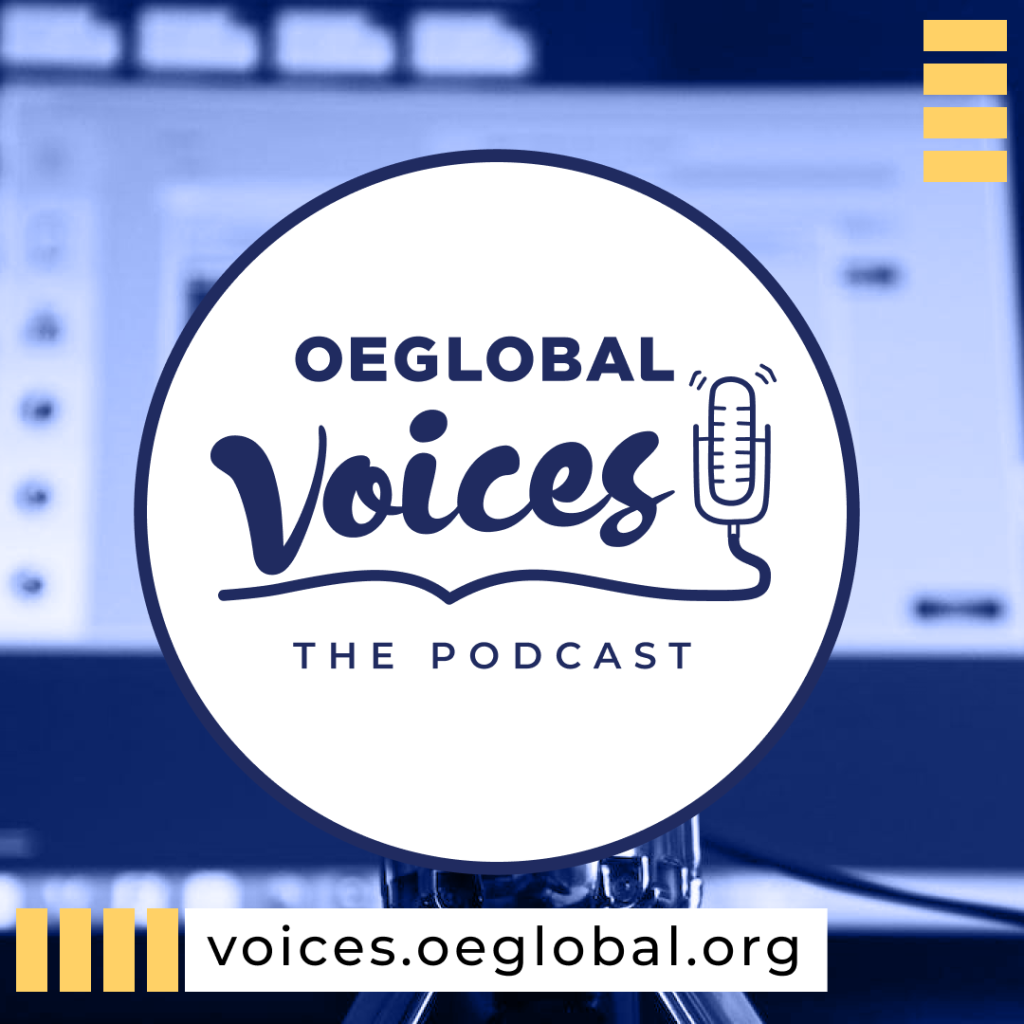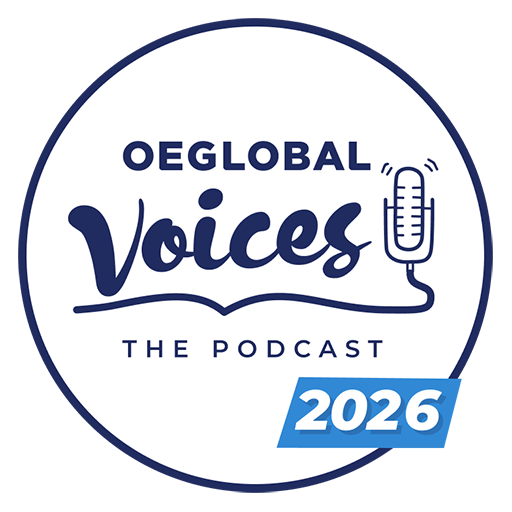Listen to this episode for a journey through open education history with Martin Weller, who retired in June 2024 from a 30 year career at the Open University. We spoke with Martin in late May to learn more about his educational journey from working class roots to professor of educational technology – starting in 1995 at the OU, in f all things, as a lecturer in artificial intelligence (we honor Martin’s request not to talk much about AI).
You will appreciate Martin’s humble and easy going manner considering also his numerous accomplishments in the field, including an early vision for what the 1990s web could mean for distance education, pioneering one of the earliest large scale open courses before there was an acronym for it, his leadership of the very successful Global OER Graduate Network (GO-GN), plus his series of published books, fed by his passion for blogging. And in the episode you might even get a bit about metaphors, dogs, hockey, and sharks.
We were joined in the studio by Martin’s long time colleague, and friend, Clint Lalonde (BCcampus).

An hour conversation could barely cover Martin Weller’s many achievements but this should provide a clear sense of his perspective, and as well, what he plans to do in his “post-OU” career.
Podcast: Play in new window | Download
at Descript.com
In This Episode
FYI: For the sake of experimentation and the spirit of transparency, this set of show notes alone was generated by AI Actions in the Descript editor we use to produce OEGlobal Voices.
In this episode of the OE Global Voices podcast, host Alan Levine is joined by Martin Weller and Clint Lalonde to discuss Martin’s impressive 30-year tenure at the Open University. The conversation covers a wide range of topics from the emergence of web-based learning, Martin’s journey into AI and open education, to the transformative impact of courses like T171. Martin shares insights about the evolution of distance learning, the role of narrative and metaphor in education, and the significance of blogging in his writing process. The trio reflects on the significance of MOOCs, the evolution of social media in education, and the success of the Global OER Graduate Network. This enriching episode encapsulates the milestones in Martin’s career, his contributions to open education, and the meaningful connections formed within the community.
- Introduction to the Podcast
- Meet the Guests: Martin and Clint
- Martin’s Background and Education
- Journey into AI and Open University
- Pioneering Online Learning
- The Success of T171 Course
- Innovative Master’s Course Design
- The UK eUniversity Platform
- Milton Keynes: A Unique Educational Hub
- The Power of Narratives and Metaphors
- Journey into Book Writing
- The Impact of Blogging on Writing
- Significant Moments in Ed Tech
- The Global OER Graduate Network
- Final Reflections and Farewell
Additional Links and Quotes for Episode 72
It got rid of the argument about “Can we do teaching online?” That argument had gone– [it] didn’t mean you couldn’t argue that students don’t want to learn this way, or we can’t teach our model now, there was enough demonstration to say “We can do this.” And students were coming out of that module saying, “Where’s the next fully online course?”
I think it kind of pivoted the OU towards online learning quite significantly, you know, jumped us a few years. So it was quite a surprise to me to discover in 2012 that MOOCs were inventing online learning, you know– there we were .
Martin Weller on T171 “You, your computer and the net” a fully online course launched in 2000 with 15,000 students
- Edtechie.net (Martin Weller website)
- From the University of the Air to the university everywhere (Wonkhe, post by Martin)
- Aspects of Open: The evolution of the meaning of open education (Open University 50 Years Inaugural Lecture by Martin)
- T171 You, your computer and the net (Open University Digital Archive)
- John Naughton (The Guardian)
- Institute of Educational Technology (Open University)
- Masters in Online and Distance Education (MAODE) (Martin blog post)
- 25 Years of OU: 2001 – UKeU (Martin Weller blog)
- BA/BSc (Honours) Open degree (Open University)
- Milton Keynes (Wikipedia)
- Global OER Graduate Network (GO-GN)
- MARS playlist (Spotify)
My daughter was in school and I think they were doing IT And the teacher said to them, “Oh, there’s these things called MOOCs you can study.” And she said, “Oh, my dad knows the people who invented MOOCs.” And the teacher went, “I doubt it.” And I was like, “No, I do, I really do. I’ve got to fly Dave and George and everyone else.”
Martin Weller on MOOCs
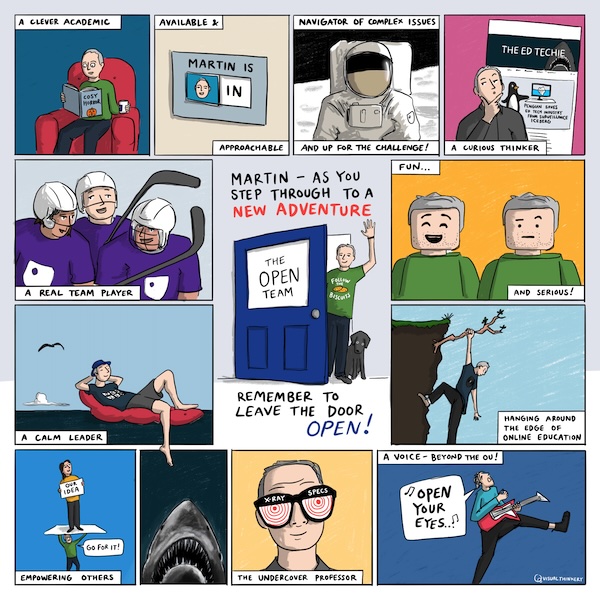
So we have these annual meetings and bring together usually with OE Global, sometimes with the UK OER conference. We bring together a number of PhD students who are studying OER around the world. It’s interesting, when we first started, it was very much kind of OER, people looking at open textbooks, that kind of stuff, and that’s really shifted much more to kind of open educational practice and social justice, which I think has kind of mirrored the kind of shift in the community, and actually been driven by a lot of the GO-GN people. A lot of those people have gone on to become quite significant in the community.
But it’s such a kind of great project to have, you know, it’s like all these people are brilliant in bringing the students together. It’s really meaningful to them.
They make really meaningful connections, and … powerful for them to allow them to finish and then we produce these really good outcomes from it as well.
Martin Weller on GO-GN
Our open licensed music for this episode is a track called A Journey In To The Great Unknown by Squire Tuck licensed under a Creative Commons Attribution-NonCommercial-NoDerivatives 4.0 International License. Like most of our podcast music, it was found at the Free Music Archive (see our full FMA playlist).
This was another episode we are recording on the web in Squadcast. This is part of the Descript platform for AI enabled transcribing and editing audio in text– this has greatly enhanced our ability to produce our shows. We have been exploring some of the other AI features in Descript, but our posts remain human authored unless indicated otherwise.
